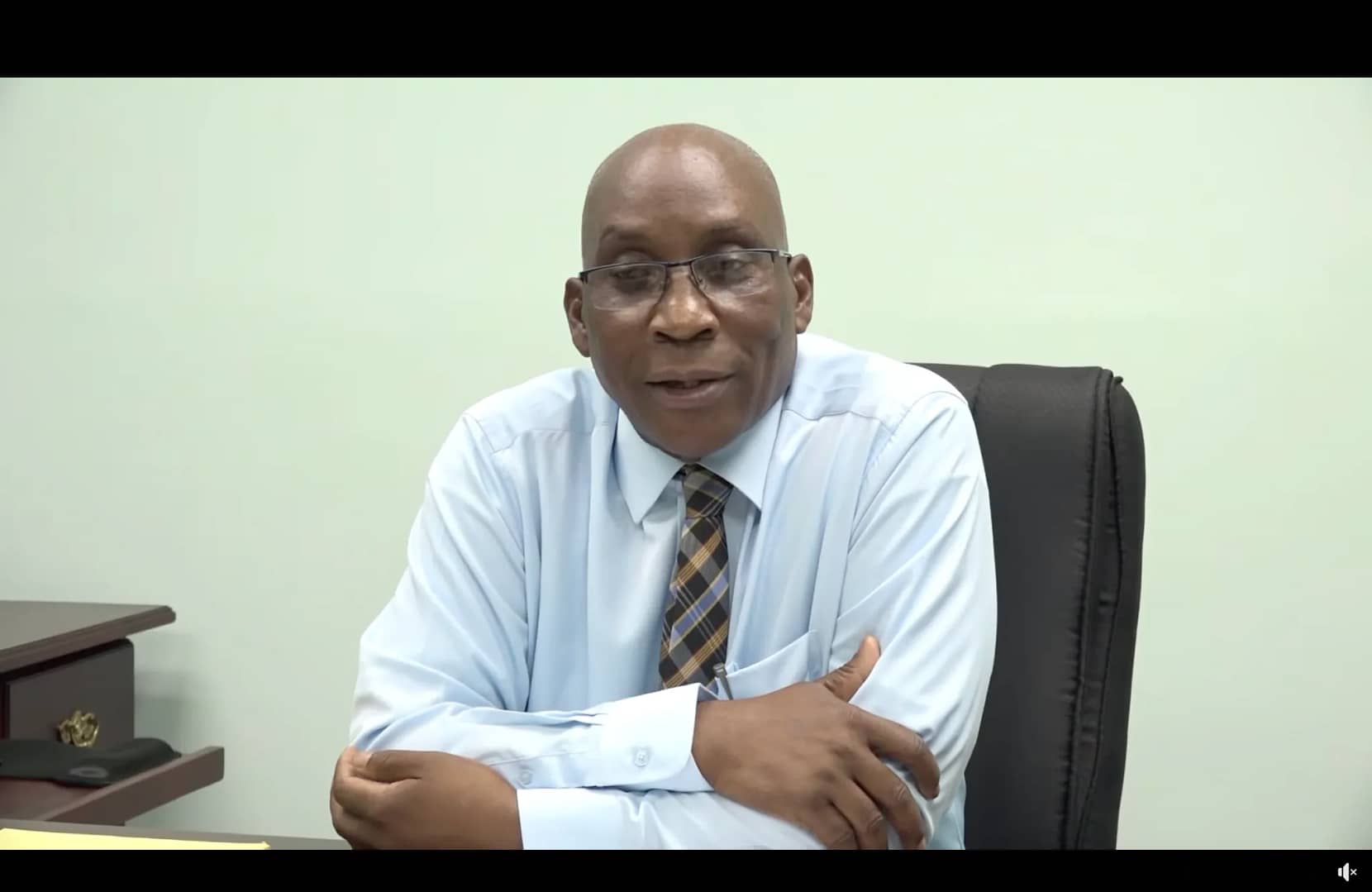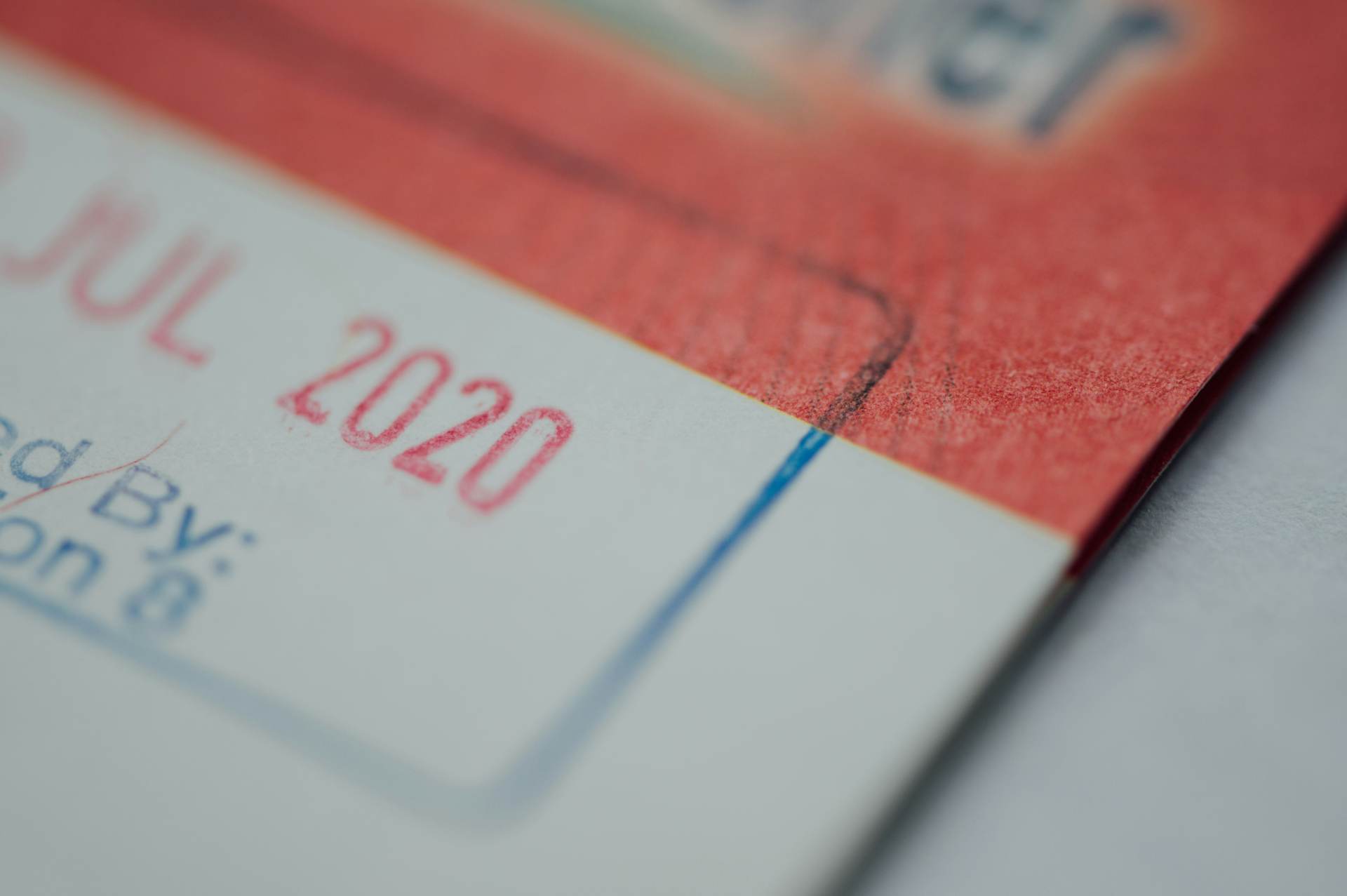
(SOURCE: VISA VERGE) The U.S. government has revoked the U.S. visa of Grenada’s Finance Minister, Dennis Cornwall, effective August 21, 2025, blocking him from traveling to the United States for any purpose, including official duties such as meetings of the International Monetary Fund and World Bank. The revocation is effective immediately, marking a sharp escalation in Washington’s recent visa policy restrictions on Grenadian government figures and their families.
The action bars Cornwall from entering the United States for government business, international conferences, or personal travel. It also raises practical questions about how Grenada will be represented at major financial meetings hosted in the U.S., where finance ministers often meet lenders, rating agencies, and development partners. For a small economy, even temporary limits on a finance minister’s mobility can slow talks on debt, investment, and aid.

U.S. visa restrictions targeting Grenada widened in August after the State Department expanded a policy aimed at foreign officials who support Cuba’s overseas medical missions, which Washington describes as a labor export program with forced-labor concerns. The broadened policy now reaches current and former officials believed to be involved, as well as immediate family members. According to analysis by VisaVerge.com, when U.S. authorities extend restrictions to family, students and spouses often see study, work, or travel plans upended with little warning.
Policy changes and background
This latest step formalizes what Dennis Cornwall and other leaders in Grenada had said they were prepared to face. In March 2025, Cornwall publicly stated that he—and other officials—were willing to give up their U.S. visas in solidarity with Cuba. A graduate of a Cuban university, Cornwall framed the issue as a moral and ethical obligation, arguing Grenada would “go to the extreme” to keep people safe and maintain the Cuban medical brigade that supports local hospitals and clinics.
Foreign Affairs Minister Joseph Andall echoed that position, cautioning against a transactional approach to foreign policy and underscoring Grenada’s solidarity with Cuba.
The State Department’s legal authority to revoke a visa is broad. Under federal rules, consular officials may revoke a visa at any time, and carriers and border officers are notified so the traveler cannot board or enter. For reference, the U.S. regulation on visa revocation is set out in 22 C.F.R. 41.122, available on the government’s official eCFR site: https://www.ecfr.gov/current/title-22/chapter-I/subchapter-E/part-41/subject-group-ECFR21a2f1b1c993a9b/section-41.122. There is no public appeal process for these actions, and individuals typically must reapply for a new visa if or when policy conditions change.
The United States cites human rights concerns behind the expanded measures, pointing to allegations that Cuba’s medical missions amount to forced labor. Grenadian officials counter that removing Cuban doctors would damage care on the island and leave clinics understaffed. That clash—rights concerns from Washington versus health system needs in Grenada—sits at the heart of the current tension.
Immediate impact on officials and travelers
The immediate effect is clear: Dennis Cornwall cannot travel to the United States, including for IMF and World Bank meetings. That disruption may force Grenada to adjust how it engages in global financial talks when sessions are hosted in U.S. cities.

Beyond Cornwall, other Grenadian officials and their families could also face revocations or refusals under the policy, limiting their ability to visit, conduct business, or study in the U.S.
Practical effects often appear quickly:
– Airline check-in systems will flag a revoked visa, and the traveler will be denied boarding for flights bound for the United States.
– U.S. ports of entry will not admit a traveler with a revoked or canceled visa.
– Family members may discover their own visa eligibility has changed, or that pending applications are refused under the expanded restrictions.
Important
Do not book nonrefundable flights to U.S. destinations before verifying visa status; airlines will deny boarding if a visa is revoked and refunds or rebooking costs can be substantial.
Grenadian leaders say these costs are part of a broader stand. They argue that the Cuban medical brigade fills important gaps, especially in specialized care and rural service. Health officials fear that if the program is disrupted, wait times will grow and coverage will shrink — a concrete worry for families who depend on nearby clinics.
The move has sparked debate across the Caribbean about how far governments should go to resist U.S. diplomatic pressure when core services are at stake. Some regional voices view the U.S. policy as a rights-based stand; others see it as punishing small states for relationships they consider essential. For Grenada, the policy now has a personal face: Dennis Cornwall, a senior cabinet figure, is sidelined from travel to the United States.
Key takeaway: The visa revocation has immediate procedural consequences and broader diplomatic and health-system implications for Grenada and the region.
Procedural details and likely next steps
Visa revocation typically proceeds as follows:
1. The State Department updates its records and notifies the individual.
2. The record change is shared with border agencies and airline partners to prevent boarding and entry.
3. Affected individuals may wait for policy shifts or reapply for a visa; there is no public, formal appeal process for this type of revocation.
U.S. officials say the goal is to pressure governments that back what Washington views as abusive labor programs. Grenadian officials respond that cooperation with Cuba is lawful, rooted in long-standing ties, and directly benefits patients. Both positions are likely to harden if the standoff continues.
Possible outcomes going forward:
– The United States could expand visa restrictions to more officials or maintain them for an extended period.
– Grenada may seek case-by-case exemptions for essential government travel.
– Other Caribbean governments may rally behind Grenada, increasing diplomatic friction with Washington.
For now, the facts are straightforward:
– The visa of Dennis Cornwall is revoked effective August 21, 2025.
– He cannot enter the United States for any purpose, including official business.
– Other officials and families in Grenada may face the same treatment under the current policy.
– The broader dispute—human rights concerns cited by the United States versus public health needs cited by Grenada—remains unresolved and continues to have real effects on travel, study plans, and access to care.
Officials in St. George’s said they will monitor developments and inform affected families. Travelers with Grenadian passports should check State Department updates before booking flights, as policy shifts can change visa eligibility and travel plans very suddenly.
Advertise with the mоѕt vіѕіtеd nеwѕ ѕіtе іn Antigua!
We offer fully customizable and flexible digital marketing packages.
Contact us at [email protected]
















When that article about Venezuela came out about 6 months ago, and this foolish government was talking about “standing with Venezuela” I for one warned these foolish Gatson Brownes followers about the ill-effects of such move.
Talk all y’all want, but Antigua needs the US way more than they need Venezuela, and that’s just a fact..
This government will not rule Antigua forever, and if they are doing things continuously to hurt the broader public and their status in the world, then this administration should be removed forthwith.
Hate the US all you want, but trust me they are not going anywhere..not when money talk and bullshit walks in this grabby grabby world we live in today, and if the US remove their support from any country/nation, that’s a huge blow.
This is all politics I’m talking here, not personal feelings..that’s the art of diplomacy, which this current government are sucking up to the wrong people like the Chinese, Cuba and the likes of Venezuela. Like it or not, but that’s just where we are.
Washington is using scare mongering and high handed tactics against Caribbean leaders in an effort to get compliance into this Cuban Medical Brigade issue. Any country and its leaders who do not comply would be seen as being rogue especially when other Caribbean countries and its leaders have just asked, “how high” when Washington ask them to jump. Other Caribbean countries have already adjusted their Cuban Medical service issue by paying the medical staff directly and leaving the burden on them to pay their government.
Neighbor house on fire yours.
I knew from the time grenada didn’t not go along with the US to accept the migrants it was the beginning of problems. Trump is a bully we all know that by now
*deportees*
I would truly say that the US is mostlikely in the right here. Why on earth can’t the Caribbean simply push for Cuba to allow payments to go directly to workers? Why not simply push Cuba to make the situation for the workers be voluntary and knowingly. Is this too much to ask? I do not think so.
Guess who are submitting these complaints to the US, the same nurses and doctors and their US family members. But stupid politicians are focused on the wrong thing. Focus on the Cuban people who are working for your country as slaves or being trafficked, peonage, fraud in foreign labor, etcetera.
These kinds of victimization has always been frowned upon by the US. Please see US T visa (victims of trafficking visa), and US U visa (crime victim visa).
So for a US visa, you will sell your soul??
Is the USA isolating itself from the rest of the World? There may come a time when the United Nations and other World bodies may well need to relocate. One country, one vote. The Caribbean Nations have long supported the USA. Cuba provides education and professional services to the lower Caribbean, stimulating our financial and cultural growth.
Just a reminder that it is the UPP that joined ALBA, which has just issued a strong statement in support of Venezuela. The USA has intensified their efforts to remove Maduro, with very sophisticated war ships headed to the region. This is far more dangerous than what is happening with Cuba.
Something is missing in this news story.
If the real or artificial reason for the action of the USA is the way the Cuban health workers are paid, why not address this? Why set yourself up for trouble and “punishment”?
I have been practicing medicine in Antigua and Barbuda since 1983. I can attest to the value of the Cuban Medical Brigade program. But I can also attest to the fact that many of us, medics and others, have had many questions about the program, including how the Cuban workers are paid.
It’s one thing to stand with Cuba. I do. It’s another thing to be silly and hard-headed when even your own people question the format of the payment, long before the USA promised to act.
It’s a touching irony. You have a patient who is allegedly not being treated properly, rather than regard the treatment, review and revise, if necessary, based on national and regional concerns, you persist and set yourself up for failure. Bad medicine…
Diplomacy you say, surely you jest. What is your take on the Trump Administration’s deployment of navy destroyers, nuclear submarines and military personnel to the Caribbean region under the guise of controlling the illegal drug trade? The U.S. military’s specialty is not an assistant to the DEA, it is WAR. Do you think that is diplomatic?
What are your thoughts on persons seeking a U.S. Visa handing over all of their social media information to U.S. immigration for review? Is that diplomatic? What is your stance on persons from the Caribbean who speak ill of the U.S.of A and its present president being illegally deported? Is that diplomacy? You live in a region where the majority of its inhabitants are of African descent and knowing the U.S. involvement in the Caribbean and their covert undermining operations during the 1940s to present do you honestly believe we are in good standing with the U.S. of A? Do you know what is happening thousands of feet beneath the Caribbean Sea and above in the stratosphere? Are you aware if the US wishes to invade a sovereign Caribbean nation they can go against NATO and do as they please and state it is a matter of homeland security (e.g. Grenada 25th October 1983) Money talks? Absolute power TRUMPS money every single time.
You say the Gaston Browne administration will not last forever, neither will the Trump Administration, however what they do in the present will have long lasting and negative consequences in the future for generations to come. Stand for nothing fall for anything, Judas did it for a few shillings of silver, then again you can fill a warehouse with the things I do not know.
The U.S. needs to focus on real issues, not punish countries for accessing essential healthcare.
This highlights the tricky balance Caribbean leaders must maintain with the U.S. while protecting local needs.
I do not want health care at the price of slavery for Cubans. I want them to get their money directly.
Oh please. The US is an IRRELEVANT country.
The only reason they are targeting Grenada is because they will not take US deportees.
F them!!!
Go fix your own glass house!
During the AMERICAN led INVASION on october 25, 1983 code named operation CODE FURY to oust GRENADA MARXIST regime supported by COMMUNIST CUBA and RUSSIA to restore DEMOCRACY and prevent COMMUNIST influence,resulting in the rescue of american students and the capture of SOVIET weapons.
NOTE:Among U.S TROOPS 19 were KILLED and 116 were WOUNDED.Short memory( historical amnesia) FINANCE MINISTER.I wonder what is BARBADOS position on this matter?NOTE:Article in ANTIGUA NEWSROOM dated march 13,2025 headline PM MOTTLEY prepared to have her U.S VISA revoked over CUBA health BRIGADE PROGRAMME.
The U.S GOVERNMENT needs to EVACUATE AMERICAN students attending the MEDICAL SCHOOL to prevent another INVASION.
Reference to the CRISIS in HAITI U.S government should not get involve, no boots on the ground.
HAITI is a member of CARICOM the governments of CARICOM need to send their military ARMY to restore DEMOCRACY,LAW and ORDER.
Comments are closed.